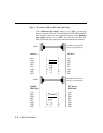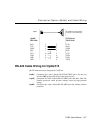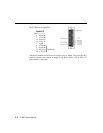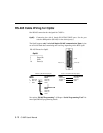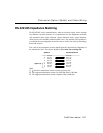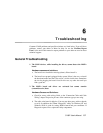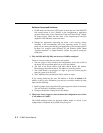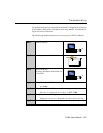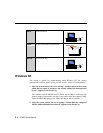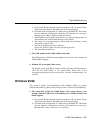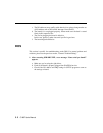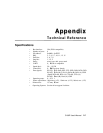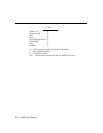
6-2 C168P User’s Manual
Software Causes and Solutions:
a. C168P checks the line status (CTS) before it sends data out if the RTS/CTS
flow control feature is set to “Enable” in the configuration or application
program. Please refer to the “Connection Cable and Cable Wiring” chapter
for proper wiring. Check the line status of the suspected port using the
diagnostic LED indicators on the mini tester.
b. Perhaps the application controlling the board is not correctly written
according to the corresponding API of the operating system. To verify,
please run an existing and known good application or the provided utilities
by Moxa. For example, under Windows NT and Windows 95/98,
Pcomm
“Terminal emulator” or “HyperTerminal” utilities are good for testing the
COM ports.
3. Why the DOS utility IQ-IRQ can not access C168P to configure?
There are several reasons that may lead to this trouble:
a. The user forgets or does not know the Configuration Access Port (CAP) of
the board. See next problem
4 for how to solve this problem.
b. The CAP of the board conflicts with other add-on boards’ I/O address.
Please change other add-on boards’ I/O address to avoid the conflict.
c. The C168P board is not plugged in a right or good slot. Please plug the
board in a good 16-bit ISA slot.
d. The C168P board may malfunction. Please return for repair.
If any existing board has the same I/O address as 0x180, the
default CAP
address, or the 1st port's I/O address, you must try to avoid the conflict by doing
either one the following.
a. Install a jumper (short) at position JP1 on the upper-left corner of the board.
This will force the CAP address to 0xA700.
b.
Change or disable the existing board's I/O address.
4. What to do if user forgets or does not know the Configuration Access Port
(CAP) address of C168P?
The C168P multiport boards are designed without jumper or switch, so the
configuration is completed only by DOS utility Io-irq.exe.



